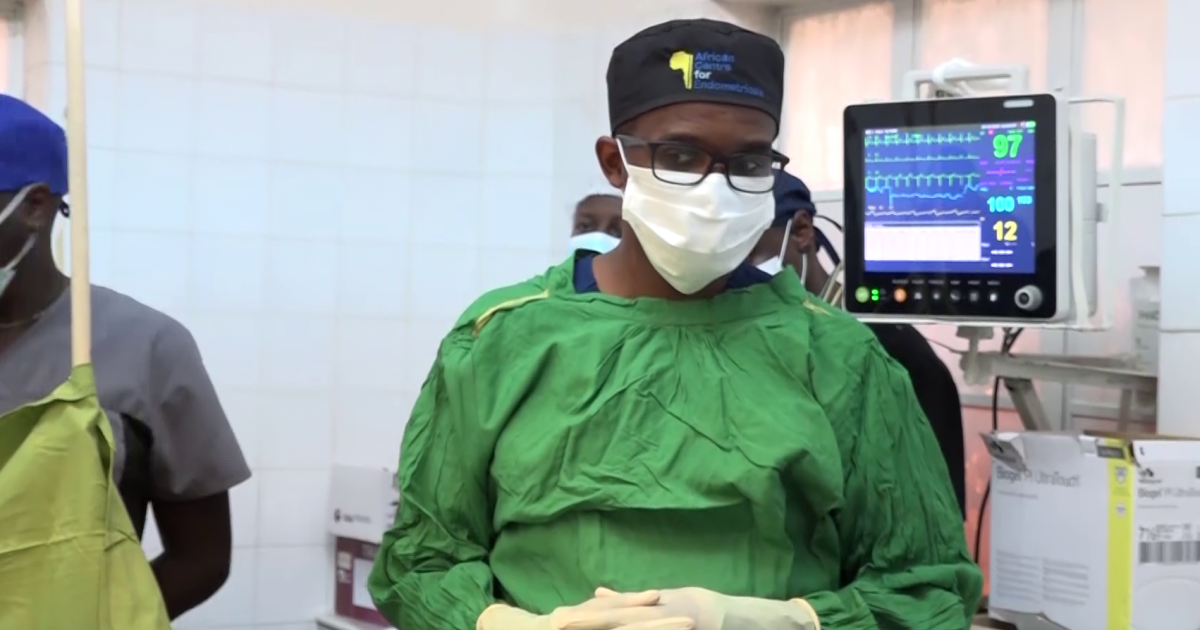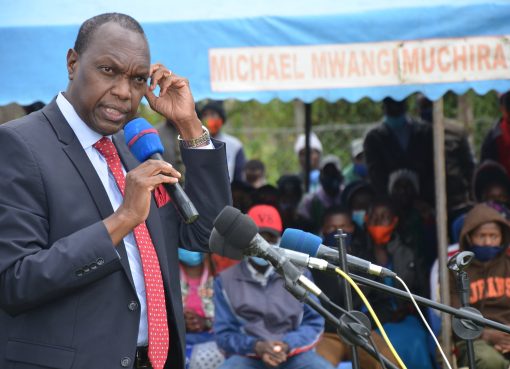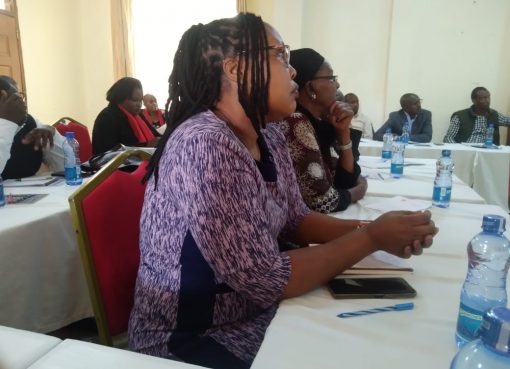The month of March is usually the endometriosis awareness month and activities lined up to create awareness in Kirinyaga County, patients at ACK Mt. Kenya Hospital are benefitting from free endometriosis surgery.
Usually the cost of such surgery ranges between Sh350, 000 and Sh1 million depending on the severity of the disease.
Endometriosis is a condition characterized by stigma, myths and taboos that involves the growth of tissues outside the uterus that are similar to the uterus lining.
Symptoms include pelvic pain, pain during menstrual cycle and during sexual intercourse while it may cause infertility and in worst-case scenario death.
Dr Joseph Njagi a gynaecologist, a laparoscopy surgeon and an endometriosis excision specialist, who was conducting the surgeries at ACK Mt Kenya Hospital in Kerugoya, said the kind gesture was meant to mark the endometriosis awareness month.
“We have attended to patients from rural communities suffering from endometriosis. We started by screening them, doing ultrasound scans, and this week we shall be running free surgeries for endometriosis,” Dr Njagi said.
About 60 patients have been screened while 20 endometriosis patients are lined up for surgery this week.
“On average, each day we are booked for about four to five surgeries,” quipped Dr Njagi.
Dr Njagi said the country experiences a severe shortage of gynaecologists with Kirinyaga County alone having six gynaecologists. This has led to a big disparity in patient-gynaecologist ratio considering that one out of ten women will suffer from endometriosis.
It has made it a tall order for women in rural areas to access services from the specialists and more importantly for patients who require the services of endometriosis excision.
He emphasized the need for the government to invest more to bridge the gap and offer accessibility and care to the underprivileged patients. The level of awareness for endometriosis is also very low, at below one percent.
According to the doctor, the challenge is that when the patients seek medical care, they will see general practitioners such as clinical officers who may not be knowledgeable on endometriosis.
“So a patient can only access a private gynecologist or stay for long before getting to a point where they can be able to access one,” he noted.
He cautioned that there have been myths surrounding endometriosis including where young women are advised to get pregnant as a cure for endometriosis while others are advised that painful menses is a normal phenomenon which is untrue.
Taboos that prevent women from talking about issues surrounding menstrual health also make things worse as these symptoms remain unreported, calling upon more stakeholders to come onboard and talk about this condition.
“With the right skills, we are able to pick endometriosis using ultrasound scan. You will find ultrasound scans in many health facilities. But a certain level of skill is required to pick-up the changes that we see in endometriosis,” he added.
He advised that early diagnosis and detection makes it easy to manage and contain the disease’s complications. The disease can take six to ten years for the symptoms to manifest hence it can infiltrate the intestines, the diaphragm, lungs, urethra and kidney among other body organs.
Dr. Njagi said he has been carrying out surgery using advanced endometriosis procedure where there is no role of open surgery. This is through laparoscopy – a minimally invasive surgical procedure where a camera and two tiny incisions are introduced into the body.
“The advantage of using laparoscopy is that it magnifies the image. You have better clarity, less bleeding, better handling of tissues and you are able to see the disease and the risk of complications is minimal,” he explains.
Other than surgery, the disease can be treated through medication, surgery is only used as a last resort.
Peris Wairimu, one of the beneficiaries of the surgery, said she tarried with the symptoms for the last three years before going for screening and the disease detected.
“I have had a lot of pain during my menses and it was like I couldn’t move,” she said.
She says more should be done in terms of awareness, as many women in the villages who have the condition perceive it as just a mere pain during menstruation.
“These women, as a result, suffer in silence and never take the initiative to go for screening,” she revealed.
By Mutai Kipngetich




